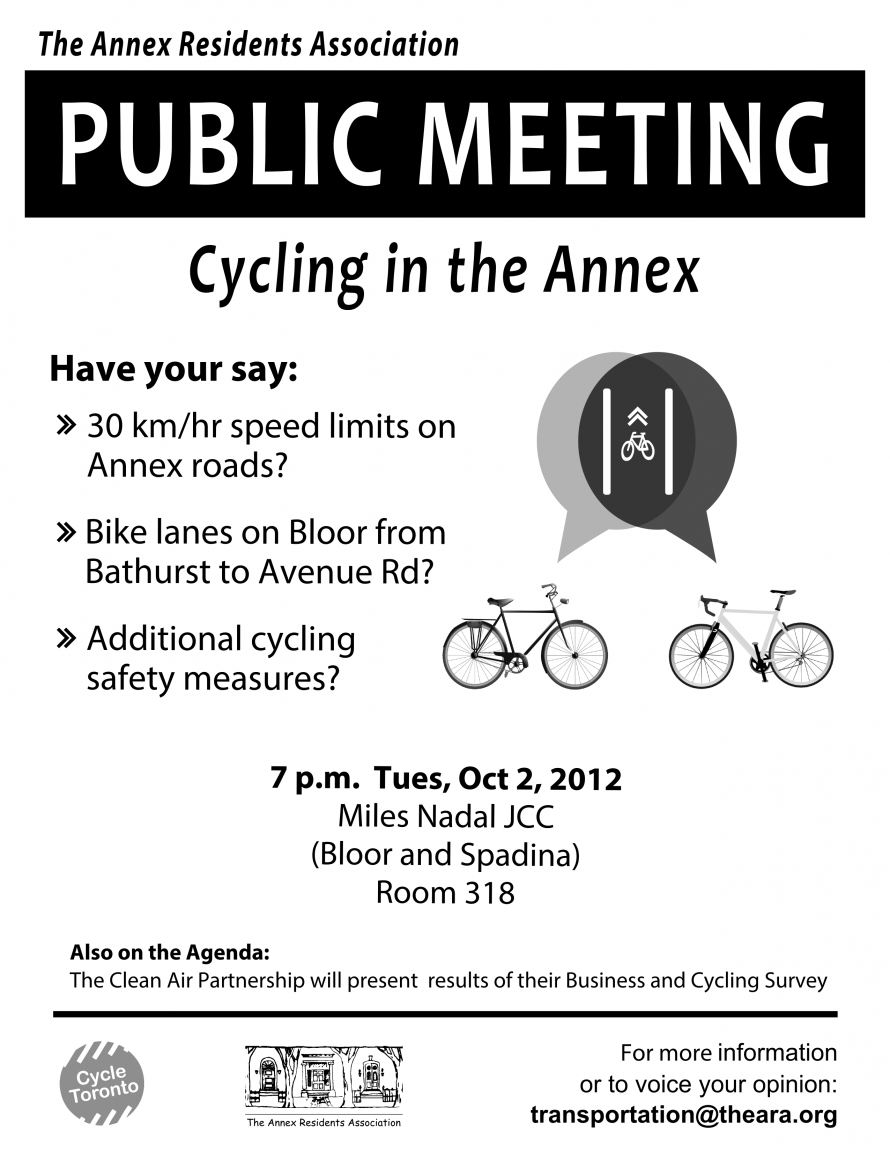Every once and a while the subject of bicycle licensing (whatever that means) comes up. In this case, it was Forum Research, a polling firm that decided to include it as one of their questions. There's no better way to raise the profile of a polling firm by addressing controversial topics and then get the results printed in a newspaper.
In a leading question, they asked “Do you approve or disapprove of licensing bicyclists so that traffic laws can be enforced with them?” The whole "so that" at the end makes the listener think that the only options are licensing or lawless chaos, sweeping away thoughts of cyclists already getting ticketed in yearly blitzes.
The Star panned their own article on bicycle licensing by reaching out to wonky folks like Cycle Toronto and yours truly (never one to give up a chance of self-promotion). The gist, bicycle licensing is confusing, impractical, punitive and would hurt tourism and the economy. Licensing hasn't prevented drivers from getting in crashes, so it's not clear how it solves things.
Bicycle licensing are a favourite of right-wing, suburban, driving politicians who find cyclists as a handy urban scapegoat, while mandatory helmets are a favourite of left-wing politicians who see cycling as a dangerous past time and that cyclists need to be saved from themselves. Neither group understands cycling or its potential to transform cities for the better.
“Bad poll. Wrong message. Bike licensing doesn’t work. Police have powers of enforcement. Go w(ith) education instead,” tweeted Cycle Toronto.
Of the 834 respondents, 65 percent approved. But the question didn’t make much sense to some people who pointed out that cyclists are already subject to the Highway Traffic Act. (Although the act does apply to cyclists, Police Chief Bill Blair told the police services board in 2011 that licensing would “create a certain accountability that would assist us in enforcement.”)
The issue of licensing comes up so frequently that the City of Toronto has a website devoted to its history, and Cycle Toronto has a statement online. The group opposes the idea on the grounds that creates unnecessary and costly red tape, when legislation already exists. Also, it discourages cycling.
The city investigated the idea of licensing cyclists in 1984, 1992 and 1996. The city’s manager of cycling infrastructure and programs says it is not currently being studied and doesn’t have much merit.
“This notion that if people have a licence they’d be better cyclists, that hasn’t stopped drivers from crashing into each other,” said Daniel Egan.
Another question in the Forum survey asked if licensing would be a fair trade for European style bike infrastructure.
“There’s a presumption that cyclists aren’t paying for anything, and don’t deserve anything, as if we don’t pay property taxes,” says I Bike Toronto blogger Herb van den Dool.
Since cyclists can already be stopped by police, van den Dool says licensing seems to be a way to collectively punish cyclists “because somehow there’s been a general sentiment created that we’re getting away with murder.”
Even further, it is an impractical idea that would hamper tourism efforts like the Bixi program, he said.
Eleanor McMahon, founder of Share the Road, says many people assume that a licence is a way to “control or change behaviour.”
“That hasn’t necessarily been the case with licensing cars,” she said.

